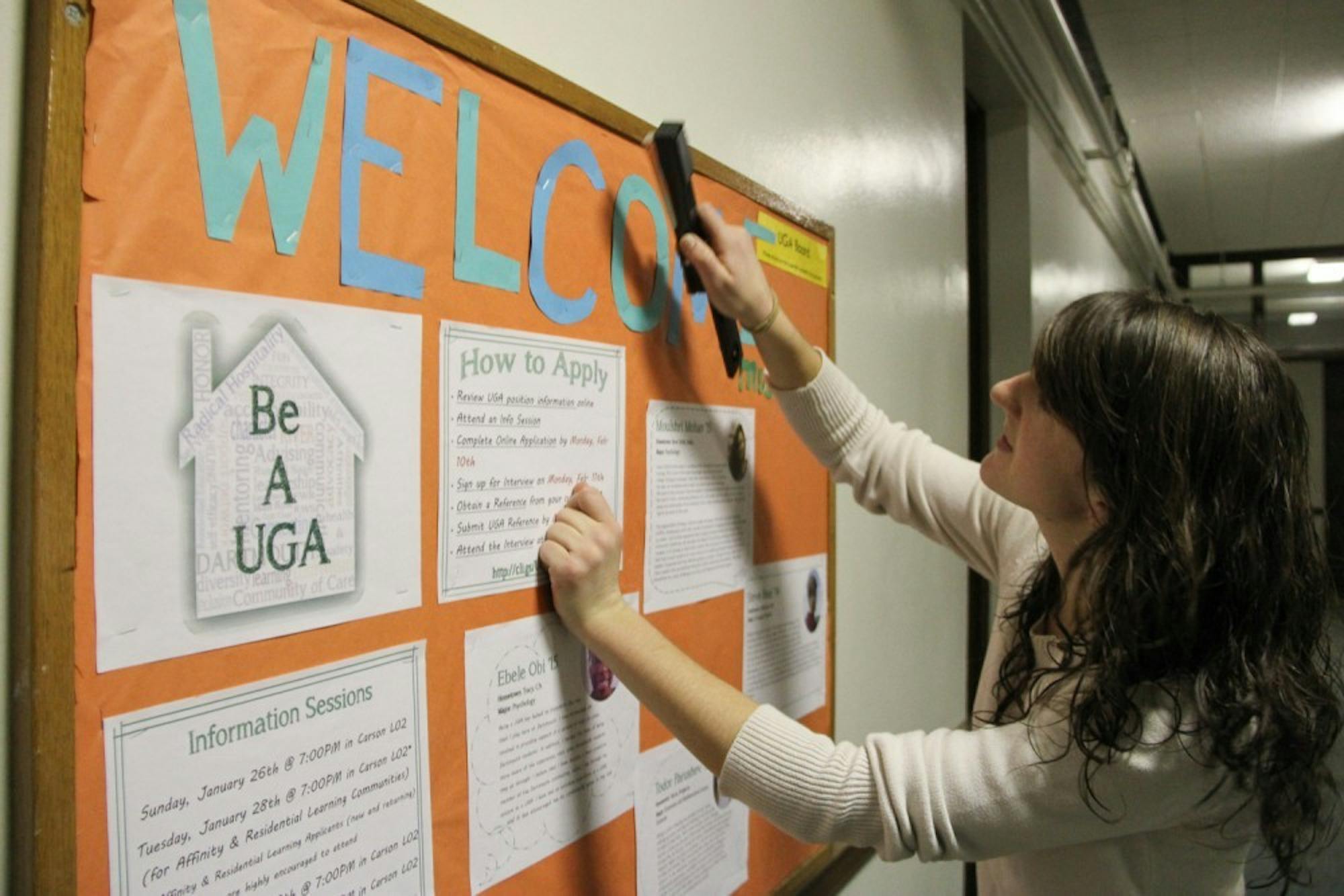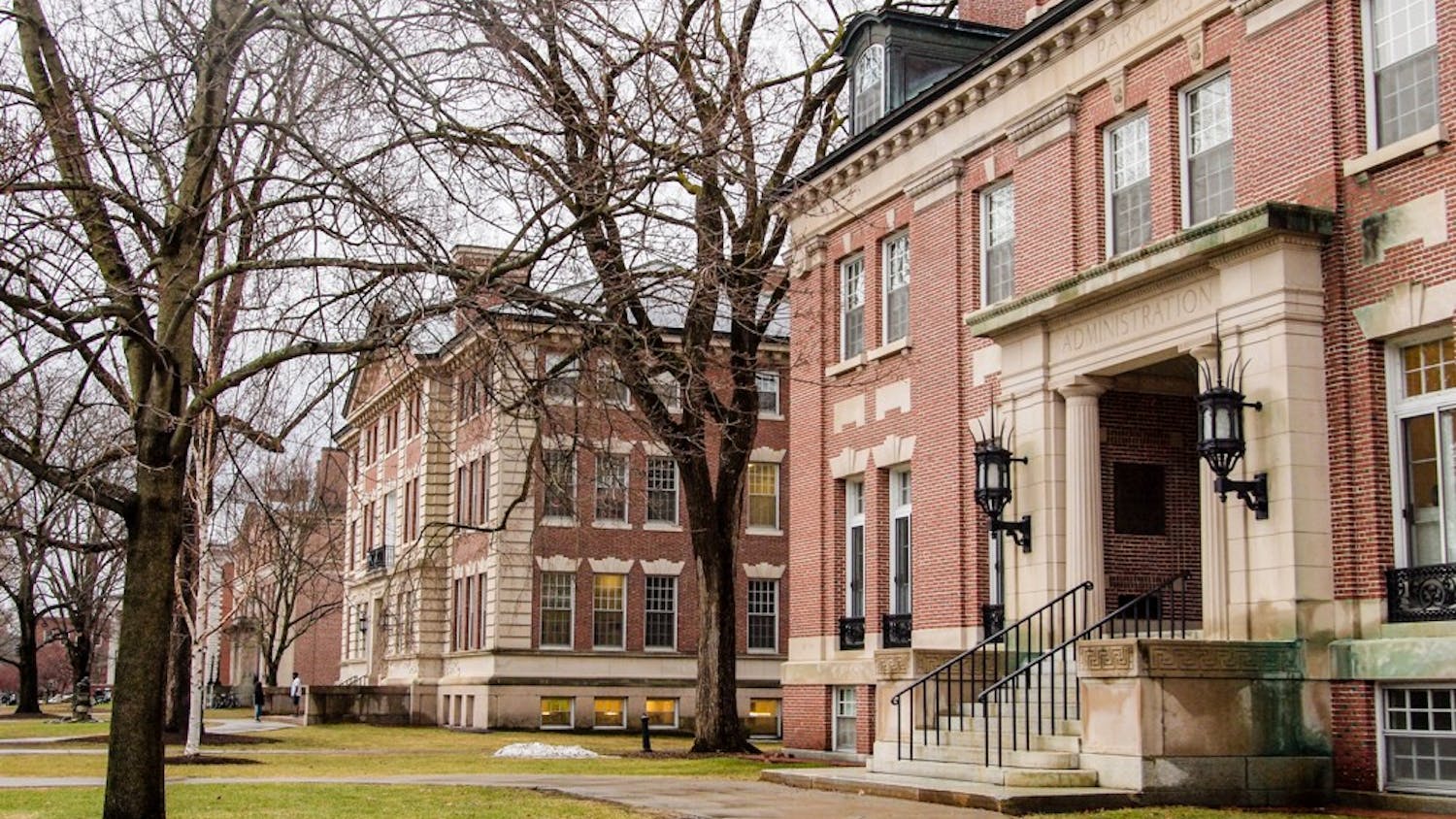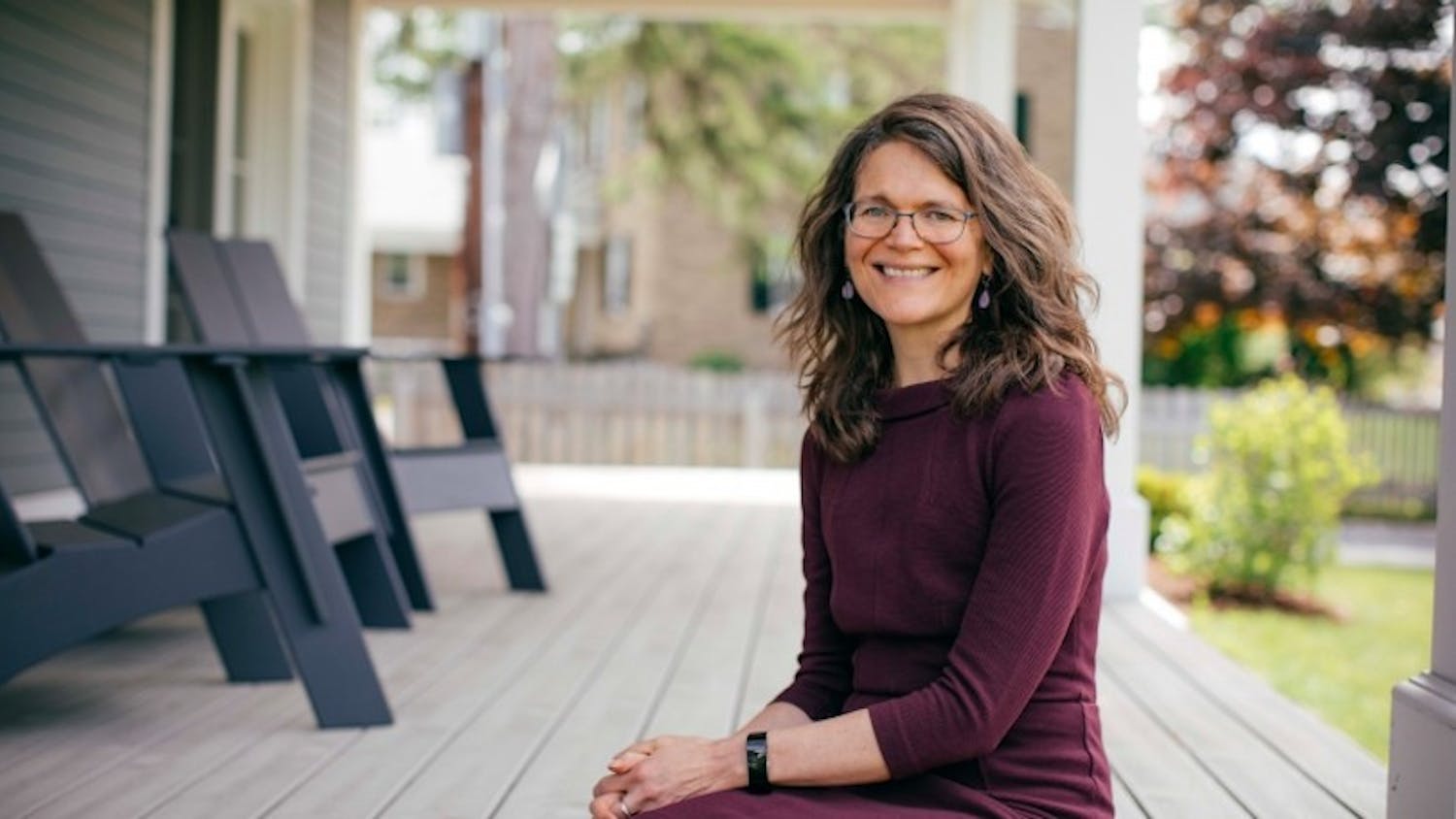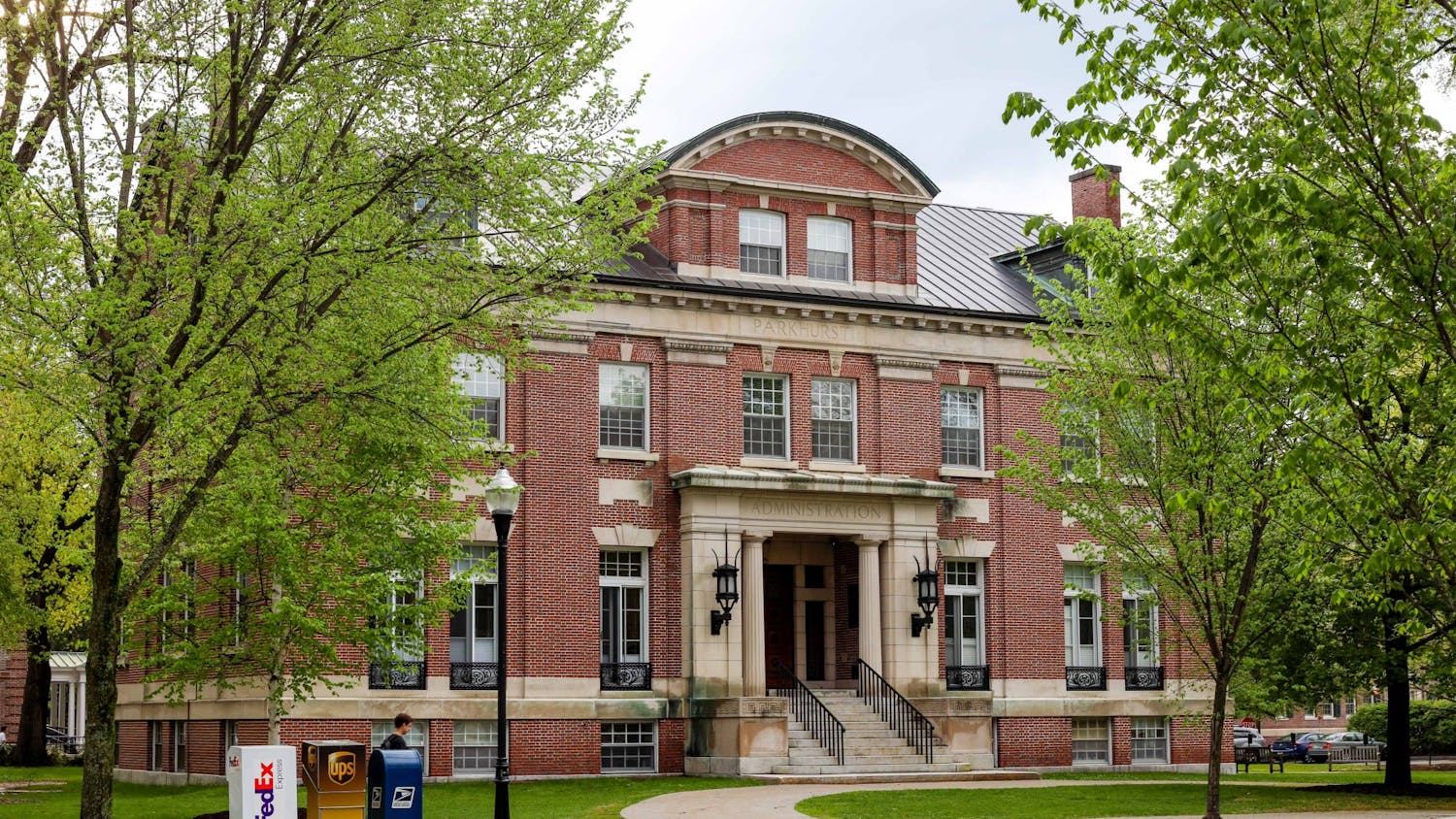Although undergraduate advisors have always had a role in enforcing community guidelines and school policy, pandemic regulations have added new duties, and with them new concerns.
Several UGAs have expressed difficulties implementing COVID-19 policies, which some have found ambiguous and confusing. Additionally, residents are more unequally distributed among UGAs than usual, with some UGAs in charge of around 40 residents, and others as few as four.
UGA Emily Bjorkman ’21 said that UGAs have become the main enforcers of the College’s COVID-19 policy, which she said puts her in an uncomfortable situation.
“I don't think that UGAs should be the primary point of contact for enforcing these policies,” Bjorkman said. “It's a really difficult position to put students in.”
Bjorkman said that adult employees and staff of the College, including Safety and Security, are having fewer interactions with students due to movement and distancing restrictions, so the role of policing student behavior falls largely on the UGAs.
Associate dean of residential life Michael Wooten said that he understands UGAs this term are facing a more challenging task than usual in enforcing safety guidelines.
“We think that [UGAs] need to play a role in maintaining a safe community related to the virus,” Wooten said. “But we knew that there could be some difficulties in reporting [unsafe behavior].” He added that, to avoid the discomfort of reporting residents, UGAs are given the opportunity to use LiveSafe, an anonymous campus safety and reporting app.
Even with the use of the LiveSafe app, Wooten said that he is concerned that UGAs will be hesitant to report their residents’ behavior, given the strict punishments for infractions.
“It is no surprise to me that UGAs would say to themselves, ‘Am I sure I want to do this?’” Wooten said. “‘Depending on the behavior, this could result in someone on my floor being separated from the community for the remainder of the term.’”
As per College policy, should students violate COVID-19 guidelines, their on-campus privileges can be taken away for the entirety of the academic year. Some violations can additionally lead to suspension or expulsion from the College.
The task of enforcement has been further complicated by what many UGAs say is a lack of clear communication from the College administration.
UGA John Cho ’22 noted that the first few days on campus were challenging. But despite initially unclear communication from the administration around COVID-19 rules, he said that his assistant director — an administrator in charge of a subgroup of UGAs — was helpful in clarifying policy.
Bjorkman said that the most helpful support she could get from the College would be a greater level of clarity. For example, Bjorkman described confusion during the two-week quarantine period over the guest and visitor policy, as well as what behaviors she was supposed to be enforcing.
Wooten agreed that communication with students has been “tough” but said that he and other administrators have tried to be “responsive” to UGA questions and concerns.
“[Communication] hasn’t been perfect,” Wooten said, noting that there were “plenty of ways that it could have been better.”
One of the main points of contention and confusion among UGAs has been the guest and visitor policy. The policy originally forbade any guests or visitors in dorm rooms or dorm buildings, but it has since been modified to allow one visitor from the same building in a room at a time.
UGAs have heard the new rule from Dean Lively but the school’s policy update page still says no visitors of any kind are allowed in residence halls.
Freshman residence hall UGA Diego Perez ’23 voiced concern over how the visitor policy could affect his mental health and that of his residents. Since he is living in a freshman dorm, under the policy, he would not be able to visit his own classmates in residential spaces. These concerns prompted him to join other UGAs in sending a letter to the College administration requesting that the policy be reconsidered.
“[The policy] could be detrimental to mental health for our residents and for ourselves,” Perez said.
Dean of the College Kathryn Lively said that the possible detriment to mental health of both UGAs and residents is an “unintended consequence” of the visitor policy, which was designed with the main intention of keeping the community safe from COVID-19.
“[For] every policy we made about residence halls … the primary consideration was public health and having a successful term. Period.” Lively said. “... Everything else is sort of secondary to that.”
However, Lively said that now that the issue has been brought to the attention of the administration, they are working to address it while maintaining the physical safety of the community.
“It's up to us to continue to work with our students to improve all of the circumstances that we can within the context of a plan that continues to put the … physical health and safety of the community first,” Lively said.
Mental health was not the only concern that UGAs had about the policy. Bjorkman said she worries that the policy may not be entirely enforceable, since it will be difficult for a UGA to know everyone who lives in their buildings.
“No one has the entire building roster memorized because none of us are the UGAs for the entire building,” Bjorkman said.
In general, keeping track of residents is a far easier task for some UGAs compared to others.For example, Perez has 30 freshman residents, but Bjorkman has only seven upperclassmen.
Wooten said that the Office of Residential Life tried to match freshman UGAs with fewer residents than upperclassman UGAs due to the greater amount of community building required from the job. However, he said that “there are exceptions to that based on how we had to place people throughout campus.”
Bjorkman said that she has had very little work to do as a UGA since the two-week quarantine ended. Perez, on the other hand, noted that his job has been taxing, though worth it.
“I guess for me it has been tiring, but I do enjoy it because I get to meet my residents and they’re amazing,” Perez said.




